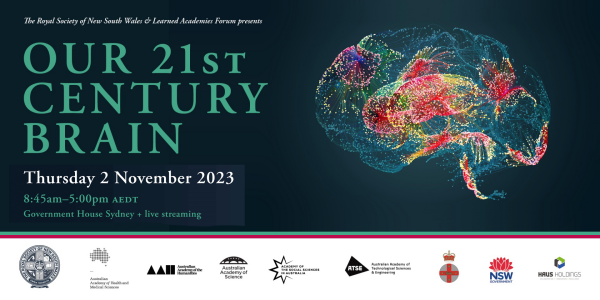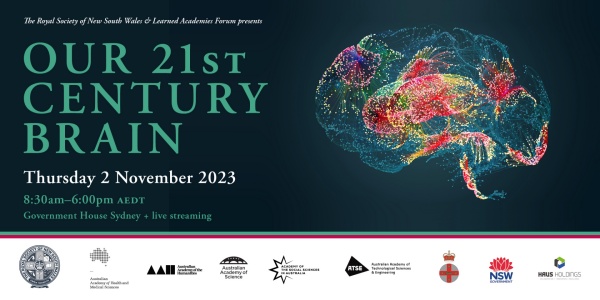Recent Award Winners
Each year, the Society makes a number of awards, mainly in the fields of science, that are among the oldest and most prestigious awards in Australia.
Awards Winners 2022
The Awards for 2022 were announced at the 1309th Ordinary General Meeting of the Society, held on Wednesday, 7 December 2022.
These included the Cook Medal, which is the Society’s highest honour, and awards for research and scholarly excellence.
The award winners are listed below, together with links to information about the awards and their recipients.
The Cook Medal
James Cook Medal — Emeritus Professor John Church AO FAA FTSE FAMS FAGU
Awards for Research Excellence
Clarke Medal and Lecture (Geology) — Professor Andrew (Andy) Baker FAGU
Edgeworth David Medal — Dr Tim Doherty
History and Philosophy of Science Medal — Emeritus Professor Stephen Gaukroger FRSN FAHA FRHistS FRSA
Burfitt Prize — Distinguished Professor Susan Scott FAA FEurASc
Liversidge Memorial Lecture — Professor Timothy Schmidt FRSN FRACI CChem
Warren Prize — Professor Anita Wing Yi Ho-Baillie FRSN FAIP
Jak Kelly Award — Mr Shankar Dutt
Royal Society of NSW Scholarships — Ms Clara Chung Ming Liu, Mr Thomas Mesaglio, and Ms Anyang (Anya) Zhao
James Cook Medal
Emeritus Professor John Alexander Church AO FAA FTSE FAMS FAGU
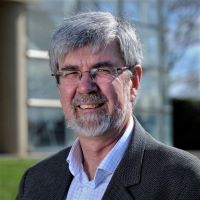
The James Cook Medal is awarded periodically by the Royal Society of New South Wales for outstanding contributions to science and human welfare in and for the Southern Hemisphere.
John Church, an Emeritus Professor in the Climate Change Research Centre, UNSW Sydney is the world’s pre-eminent authority on the rate of 20th century sea-level rise, with his work on quantifying historical changes having been pivotal in revolutionising our modern view of sea level rise, including the first detection of the acceleration in the rate of rise. His ground-breaking papers, published with both national and international colleagues, explain a long-standing conundrum about the causes for the observed 20th century sea-level rise. He has provided substantial improvements in estimates of ocean heat uptake, resolving discrepancies between observations and models as well as the causes. In addition, he has been an international leader in sea level assessments and projections and his work has established that anthropogenic climate forcing is responsible for the majority of observed sea level rise since 1970.
Awards For Research Excellence
Clarke Medal and Lecture (Geology)
Professor Andrew (Andy) Baker FAGU
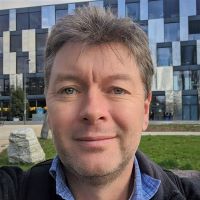 The Clarke Medal is awarded each year for distinguished research in the natural sciences, conducted in Australia and its territories, in the fields of botany, zoology, and geology (considered in rotation). For 2022, the medal has been awarded in geology.
The Clarke Medal is awarded each year for distinguished research in the natural sciences, conducted in Australia and its territories, in the fields of botany, zoology, and geology (considered in rotation). For 2022, the medal has been awarded in geology.
Professor Andy Baker, of the School of Biological, Earth & Environmental Sciences at UNSW Sydney, is an international authority in cave science, hydrology and geochemistry, especially as it pertains to our understanding of karst — complex underground systems formed from dissolution of soluble rocks, characterised by sinkholes, caves and speleothems (e.g., stalagmites). Having led over AU$10M in external projects in NSW since 2010, he has also published more than 260 internationally refereed papers, including highly-cited publications in Nature, Nature Communications, and Science.
Edgeworth David Medal
Dr Tim S. Doherty
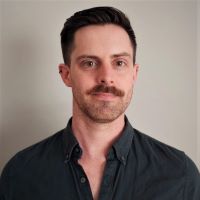 The Edgeworth David Medal is awarded annually for distinguished research by a young scientist under the age of 35 years for work undertaken mainly in Australia or contributing to the advancement of Australian science.
The Edgeworth David Medal is awarded annually for distinguished research by a young scientist under the age of 35 years for work undertaken mainly in Australia or contributing to the advancement of Australian science.
Dr Tim Doherty, an ARC DECRA Fellow in the School of Life and Environmental Sciences at the University of Sydney, has made extraordinary contributions in the fields of predator-prey dynamics, movement ecology and fire ecology, emerging as a pre-eminent scientist of his generation in developing these fields and in exploring how each is influenced by human modification of the environment. Dr Doherty’s transformative insights have been achieved by combining field experiments with novel theoretical frameworks and global syntheses. Key contributions include revealing that invasive predators have contributed to more than 50% of bird, mammal, and reptile extinctions globally, and conducting vital applied field research on fire and invasive species that informs conservation policy and management.
History and Philosophy of Science Medal
Emeritus Professor Stephen Gaukroger FRSN FAHA FRHistS FRSA
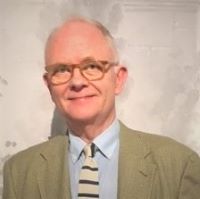 The Society’s History and Philosophy of Science Medal is awarded annually to recognise outstanding achievements in the History and Philosophy of Science, especially the study of ideas, institutions, and individuals of significance to the practice of the natural sciences in Australia.
The Society’s History and Philosophy of Science Medal is awarded annually to recognise outstanding achievements in the History and Philosophy of Science, especially the study of ideas, institutions, and individuals of significance to the practice of the natural sciences in Australia.
Emeritus Professor Stephen Gaukroger is one of the world’s leading historians of science and philosophy. Educated at the University of London and the University of Cambridge, he has held positions at Cambridge, Melbourne, and Sydney, as well as visiting professorships at Oxford, London, Aberdeen, and the École normale supérieure – Paris Sciences et Lettres. Now Emeritus Professor of History of Philosophy and History of Science at the University of Sydney, he is the author of sixteen books, including an internationally renowned intellectual biography of Descartes (1995). His work has been translated in Arabic, Chinese, French, German, Italian, Portuguese, and Russian. His major work is the 4-volume study of science and the shaping of modernity: The Emergence of a Scientific Culture, 1210-1685 (2006); The Collapse of Mechanism and the Rise of Sensibility: 1680-1760 (2010); The Natural and the Human, 1739-1841 (2016); Civilization and the Culture of Science, 1795-1935 (2020).
Burfitt Prize
Distinguished Professor Susan M. Scott FAA FEurASc
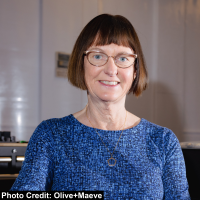 The Walter Burfitt Prize, established as a result of a generous gift to the Society by Dr W.F. Burfitt BA MB ChM BSc, is awarded at intervals of three years for research in pure or applied science. The winner must be resident in Australia or New Zealand, and whose papers and other contributions published during the past six years are deemed of the highest scientific merit.
The Walter Burfitt Prize, established as a result of a generous gift to the Society by Dr W.F. Burfitt BA MB ChM BSc, is awarded at intervals of three years for research in pure or applied science. The winner must be resident in Australia or New Zealand, and whose papers and other contributions published during the past six years are deemed of the highest scientific merit.
Distinguished Professor Susan Scott, from the Australian National University College of Science, is an internationally recognised mathematical physicist who has made fundamental advances in our understanding of the fabric of space-time in general relativity, and in gravitational wave science. She has pioneered breakthrough results probing the existence and nature of space-time singularities, the global structure of space-time, and possible initial and final endstates for cosmological models representing our Universe. Professor Scott has also been a pioneer in the analysis of astrophysical signatures in gravitational wave experiments, including the searches for gravitational waves from asymmetric neutron stars and from inspiralling binary systems of black holes and neutron stars. She has played an important role in the development and promotion of gravitational research worldwide, and a leading role in Australia’s participation in the first direct detection of gravitational waves in 2015.
Liversidge Lectureship
Professor Timothy W. Schmidt FRSN FRACI CChem
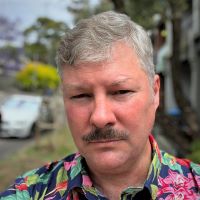 The Liversidge Lecture, established under the terms of a bequest to the Society by Professor Archibald Liversidge MA LLD FRS, who was Professor of Chemistry in the University of Sydney from 1874 to 1907 and was one of the Council members who sponsored the Society's Act of Incorporation in 1881, is awarded at intervals of two years for the purpose of encouragement of research in Chemistry.
The Liversidge Lecture, established under the terms of a bequest to the Society by Professor Archibald Liversidge MA LLD FRS, who was Professor of Chemistry in the University of Sydney from 1874 to 1907 and was one of the Council members who sponsored the Society's Act of Incorporation in 1881, is awarded at intervals of two years for the purpose of encouragement of research in Chemistry.
Professor Timothy Schmidt, of the School of Chemistry at UNSW Sydney, is internationally recognised as a molecular spectroscopist working on diverse problems from astrophysics to renewable energy. In the gas phase, he has recorded spectra of many hydrocarbon radicals for the first time and discovered new electronic excitations of the dicarbon molecule. In the condensed phase, his work concentrates on triplet-triplet annihilation and singlet fission for solar energy applications. His work has been recognised by a number of prizes including the Broida Prize (International Symposium on Free Radicals 2015), the Coblentz Award (2010), the RACI Physical Chemistry Lectureship and the RACI Physical Chemistry Medal (2021).
Return to the top of the page
Warren Prize
Professor Anita Wing Yi Ho-Baillie FRSN FAIP
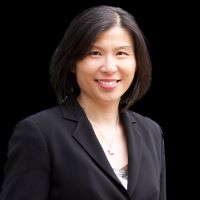 The Warren Prize consists of a medal and lectureship in recognition of research by engineers and technologists in their early to mid-career. Early-career researchers will have established a publication record in top-tier journals and wish to reach a broader audience, while mid-career researchers will have completed a larger body of work relevant to society.
The Warren Prize consists of a medal and lectureship in recognition of research by engineers and technologists in their early to mid-career. Early-career researchers will have established a publication record in top-tier journals and wish to reach a broader audience, while mid-career researchers will have completed a larger body of work relevant to society.
Professor Anita Ho-Baillie is a pioneer in the development of next-generation solar cells that are key to transitioning to a carbon-free-economy. Focussing on multi-junction solar cells, the aim of her research is to increase their power conversion efficiency towards 40% and 50% when the efficiencies of commercially available silicon solar cells are around 25%. In addition, her recent breakthroughs in improving the durability of perovskite solar cells are critical steps towards commercial viability. Despite the early stage of her career, her outstanding contributions to the important field of energy research are recognised around the world. Four times a Clarivate Analytics Highly Cited Researcher, in 2021 she was named Top Australian Researcher in Sustainable Energy by The Australian and by leading journal ACS Energy Letters, one of 30 leaders in advancing perovskite solar cells and one of 40 Women Scientists at the Forefront of Energy Research in the World.
Jak Kelly Award
Mr Shankar Dutt
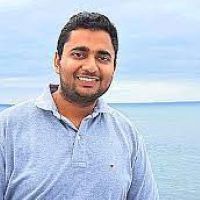 The Jak Kelly Award was created in honour of Professor Jak Kelly (1928–2012), who was Head of Physics at the University of NSW from 1985 to 1989, was made an Honorary Professor of the University of Sydney in 2004, and was President of the Royal Society of NSW in 2005 and 2006. Its purpose is to encourage excellence in postgraduate research in physics. The award is supported by the Royal Society of NSW and the Australian Institute of Physics, NSW branch. The winner is selected from a shortlist of candidates who made presentations at the most recent Australian Institute of Physics (NSW Branch) postgraduate awards meeting.
The Jak Kelly Award was created in honour of Professor Jak Kelly (1928–2012), who was Head of Physics at the University of NSW from 1985 to 1989, was made an Honorary Professor of the University of Sydney in 2004, and was President of the Royal Society of NSW in 2005 and 2006. Its purpose is to encourage excellence in postgraduate research in physics. The award is supported by the Royal Society of NSW and the Australian Institute of Physics, NSW branch. The winner is selected from a shortlist of candidates who made presentations at the most recent Australian Institute of Physics (NSW Branch) postgraduate awards meeting.
Shankar Dutt is a PhD Candidate in the Research School of Physics at the Australian National University. He investigates a nanopore-based sensing platform for the detection of different biomolecules in complex solutions including DNA, proteins and antibodies. This allows tailoring of the biomolecules' translocation kinetics and, combined with artificial intelligence, aims at early diagnosis of neurodegenerative disorders such as Alzheimer's Disease and Multiple Sclerosis.
Royal Society of New South Wales Scholarships
The Royal Society Scholarships are awarded annually in order to acknowledge outstanding achievements by young researchers in any field of science. Applicants must be enrolled as research students in a university in either NSW or the ACT on 1 January in their year of nomination.
For 2022, three RSNSW Scholarships have been awarded:
- Miss Clara Chung Ming Liu — PhD Candidate, School of Biomedical Engineering, University of Technology Sydney
- Mr Thomas Mesaglio — PhD Candidate, School of Biological, Earth, and Environmental Sciences, UNSW Sydney
- Ms Anyang (Anya) Zhao — PhD Candidate, John Curtin School of Medical Research, Australian National University
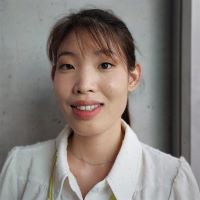 Miss Clara Liu Chung Ming is a PhD candidate in the School of Biomedical Engineering at the University of Technology Sydney under the supervision of Dr Carmine Gentile. Her research focusses on the bioengineering of advanced 3D in vitro models of the human heart pathophysiology, including “the-heart attack-in-a-Petri-dish” and heart failure using patient derived-stem cells. In particular, Clara has demonstrated that acetylcholine (a natural compound produced by our body) plays a protective role against myocardial infarction (heart attack) and drug-induced heart failure using her cells. Clara’s multidisciplinary project is carried in collaboration with the University of Sydney/Charles Perkins Centre/Sydney Heart Bank, Royal Prince Alfred Hospital and Baker Heart and Diabetes Institute/Monash University. Clara’s research has focussed also on the effects of Sars-CoV-2 on human heart pathophysiology, as well as the bioengineering of pre-eclampsia-induced heart failure using patient-derived stem cells. Her research has received several awards, including Australian Government Research Training Program Stipend (2021), FEIT HDR Women in Engineering and IT awards (2021), ASBTE Rapid Fire Presentation Award (2022) and NSW Education Waratah Scholarship (2022).
Miss Clara Liu Chung Ming is a PhD candidate in the School of Biomedical Engineering at the University of Technology Sydney under the supervision of Dr Carmine Gentile. Her research focusses on the bioengineering of advanced 3D in vitro models of the human heart pathophysiology, including “the-heart attack-in-a-Petri-dish” and heart failure using patient derived-stem cells. In particular, Clara has demonstrated that acetylcholine (a natural compound produced by our body) plays a protective role against myocardial infarction (heart attack) and drug-induced heart failure using her cells. Clara’s multidisciplinary project is carried in collaboration with the University of Sydney/Charles Perkins Centre/Sydney Heart Bank, Royal Prince Alfred Hospital and Baker Heart and Diabetes Institute/Monash University. Clara’s research has focussed also on the effects of Sars-CoV-2 on human heart pathophysiology, as well as the bioengineering of pre-eclampsia-induced heart failure using patient-derived stem cells. Her research has received several awards, including Australian Government Research Training Program Stipend (2021), FEIT HDR Women in Engineering and IT awards (2021), ASBTE Rapid Fire Presentation Award (2022) and NSW Education Waratah Scholarship (2022).
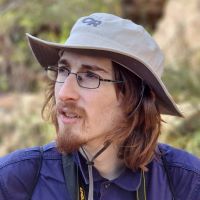 Mr Thomas Mesaglio works on quantifying our knowledge of Australian plant biodiversity, developing identification tools, survey and species description protocols and general data frameworks for improving this knowledge. Although much of his research focuses on analyses of ‘citizen science’ data, he has published scientific papers in disciplines including marine forensics, bushfire recovery and invertebrate ecology and taxonomy. As part of the Environment Recovery Project team, he received the Department of Industry, Science and Resources’ 2022 Eureka Prize for Innovation in Citizen Science. He has published two books: a guide to scientific etymology and a seashell field guide and is a curator and forum moderator on the citizen science platform iNaturalist, with 39,000 observations and 227,000 identifications made for other users.
Mr Thomas Mesaglio works on quantifying our knowledge of Australian plant biodiversity, developing identification tools, survey and species description protocols and general data frameworks for improving this knowledge. Although much of his research focuses on analyses of ‘citizen science’ data, he has published scientific papers in disciplines including marine forensics, bushfire recovery and invertebrate ecology and taxonomy. As part of the Environment Recovery Project team, he received the Department of Industry, Science and Resources’ 2022 Eureka Prize for Innovation in Citizen Science. He has published two books: a guide to scientific etymology and a seashell field guide and is a curator and forum moderator on the citizen science platform iNaturalist, with 39,000 observations and 227,000 identifications made for other users.
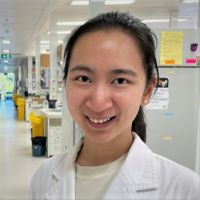 Ms Anyang Zhao's research is focused on the clinically important foodborne pathogen called Listeria, which causes 20-30% of death in humans. She has identified that Listeria infection triggers inflammation and cell death, which are biological processes crucial for overcoming Listeria infection. Excessive inflammation caused by the immune system while fighting off Listeria infection can lead to sepsis and death. Anyang’s research aims to inhibit such excessive inflammation and could lead to the development of therapies against sepsis. During her first year of PhD study, Anyang published a preview article in Cell Host & Microbe (2022) as co-first author, and further co-authored two primary research articles in Science Immunology (2022) and Nature Communications. Her research achievements have been recognised by multiple prizes, scholarships and grants.
Ms Anyang Zhao's research is focused on the clinically important foodborne pathogen called Listeria, which causes 20-30% of death in humans. She has identified that Listeria infection triggers inflammation and cell death, which are biological processes crucial for overcoming Listeria infection. Excessive inflammation caused by the immune system while fighting off Listeria infection can lead to sepsis and death. Anyang’s research aims to inhibit such excessive inflammation and could lead to the development of therapies against sepsis. During her first year of PhD study, Anyang published a preview article in Cell Host & Microbe (2022) as co-first author, and further co-authored two primary research articles in Science Immunology (2022) and Nature Communications. Her research achievements have been recognised by multiple prizes, scholarships and grants.
Events Calendar for 2024
 Please check this page regularly since the program is under ongoing development.
Please check this page regularly since the program is under ongoing development.
Most recent update: 26 June 2024
Follow the links below for meetings held by the Society in Sydney, in Newcastle by the Hunter Branch, in Mittagong by the Southern Highlands Branch, and in Western NSW by the Western NSW Branch.
- Sydney Meetings
- Hunter Branch Meetings
- Southern Highlands Branch Meetings
- Western NSW Branch Meetings
Sydney Meetings 2024
|
Wednesday, 6.30 pm AEDT |
1319th OGM and Open Lecture Venue: Metcalfe Theatre, State Library of NSW Topic: Productivity: what it is, and why it matters |
|
Wednesday, 6.30 pm AEDT |
Annual Four Societies' Lecture 2024 Venue: Metcalfe Theatre, State Library of NSW Resilience before Readiness — "... for the want of a horseshoe nail" |
|
Friday, 6.30 pm AEDT |
RSNSW Annual Dinner and Presentation of Awards Venue: Strangers' Room, Parliament House, 6 Macquarie Street, Sydney After Dinner Speaker |
|
Wednesday, 6.30 pm AEDT |
Ideas@theHouse: March 2023 Venue: Government House, Sydney (by formal invitation) and live-streaming Shakespeare on politics: what can we learn? |
|
Wednesday, 6.30 pm AEDT |
RSNSW Student Award and Early Career Citation Presentations 2023 Venue: Western Sydney University, Parramatta South Campus Dr Jaime Alvaraado-Montes, Ms Sasha Bailey, Mr Jayden McKinnon |
|
Wednesday, 5.15 for 6.00 pm AEDT |
Frontiers of Science Forum 2024 Venue: Concord Golf Club, 190 Majors Bay Road, Concord Exploring major discoveries and theories in physics, mathematics, biology, and chemistry |
|
Wednesday, 6.30 pm AEST |
157th Annual General Meeting Venue: Metcalfe Theatre, State Library of NSW Putting the Civil Back in Civil Society |
|
Wednesday, 6.30 pm AEST |
1321st OGM and Open Lecture Venue: Zoom Webinar Brain Health Equity: a new frontier for healthy longevity |
|
Friday, 3.00 pm AEST |
Joint RSNSW and State Library of NSW Special Event: May 2024 Venue: Maps Room, State Library of NSW (Mitchell Building, Shakespeare Place)) On the history of Russian conflict with Ukraine |
|
Wednesday, 6.30 pm AEST |
1322nd OGM and Open Lecture Venue: Metcalfe Theatre, State Library of NSW RNA and me: from the origins of life and nanomedicine to building an RNA ecosystem |
|
Wednesday, 6.30 pm AEST |
1323th OGM and Open Lecture Venue: Zoom Webinar Social Justice and Health Equity |
|
Thursday, 6.30 pm AEDT |
Ideas@theHouse: July 2024 Venue: Government House, Sydney (by formal invitation) and live-streaming W x 3 — The World Wide Web (we weaved) |
|
Wednesday, 6.30 pm AEST |
1324th OGM and Open Lecture Venue: TBA Theme: Issues of Housing Supply |
|
Wednesday, 6.30 pm AEST |
1325th OGM and Open Lecture Venue: Zoom Webinar Topic: TBA |
|
Wednesday, 6.30 pm AEDT |
1326th OGM and Open Lecture Venue: Metcalfe Theatre, State Library of NSW Topic: History of the Royal Society of NSW and Book Launch |
|
Thursday, 6.30 pm AEDT |
Ideas@theHouse: October 2024 Venue: Government House, Sydney (by formal invitation) and live-streaming The Big Thaw: Who governs Antarctica's Ice |
|
Wednesday, 6.30 pm AEDT |
1327th OGM and Open Lecture Venue: Zoom webinar Topic: TBA |
|
9.00 am – 5.00 pm, 8.30 am AEDT |
Royal Society of NSW and Learned Societies Annual Forum 2024 Venue: Government House, Sydney (by formal invitation) and Live Streaming Theme: TBA |
|
Wednesday, 6.30 pm AEDT |
1328th OGM and Open Lecture Venue: Metcalfe Theatre, State Library of NSW Topic: TBA |
Hunter Branch Meetings
The Hunter Branch Event Program for 2024 is still under development.
|
Monday, 19 February 5.15 pm AEDT |
Joint RSNSW Hunter Branch and Australian Decorative And Fine Arts Society—Newcastle Lecture Exploring the Holographic |
|
Thursday, 11 April 6.00 pm AEST |
Hunter Branch Meeting 2024-2 Venue: The King Street Room, NEX Newcastle Exhibition and Convention Centre, Newcastle West Conservation, Frogs, and Citizen Science |
|
Friday, 19 July 6.00 pm AEST |
Hunter Branch Meeting 2024-3 Venue: The University Conservatorium, Laman Street, Cooks Hills, Newcastle, NSW 2302 Are you what you eat? Discovering the science of personalised nutrition |
|
Thursday, 15 August 6.00 pm AEST |
Hunter Branch Meeting 2023-4 Venue: The King Street Room, NEX Newcastle Exhibition and Convention Centre, Newcastle West Topic: TBC |
|
Thursday, 24 October 6.00 pm AEDT |
Hunter Branch Meeting 2023-5 Venue: The King Street Room, NEX Newcastle Exhibition and Convention Centre, Newcastle West Topic: TBC |
Southern Highlands Branch Meetings
The Southern Highlands Branch Event Program for 2024 is still under development.
|
Thursday, 6.00 pm AEDT |
Southern Highlands Branch Meeting 2024-1 venue: RSL Mittagong, Carrington Room Topic: Ten novels that changed the world |
|
Thursday, 6.30 pm AEDT |
Southern Highlands Branch Meeting 2024-2 Venue: RSL Mittagong, Carrington Room The antiquity of life: Oldest (3.7 billion years old) stromatolite fossils discovered in Greenland |
|
Thursday, 6.30 pm AEST |
Southern Highlands Branch Meeting 2024-3 Venue: RSL Mittagong Webb's wondrous window on the Universe |
|
Thursday, 6.30 pm AEST |
Southern Highlands Branch Meeting 2024-4 Venue: RSL Mittagong Latest advances in radiation therapies for cancer |
|
Thursday, 6.30 pm AEST |
Southern Highlands Branch Meeting 2024-5 Venue: RSL Mittagong Getting technological advances into the clinic — Things I wish I'd known 20 years ago! |
|
Thursday, 6.30 pm AEST |
Southern Highlands Branch Meeting 2024-6 Venue: RSL Mittagong Topic: Space Race 2.0 |
|
Thursday, 6.30 pm AEST |
Southern Highlands Branch Meeting 2023-7 Venue: RSL Mittagong Topic: TBA |
|
Thursday, 6.30 pm AEST |
Southern Highlands Branch Meeting 2024-8 Venue: RSL Mittagong Topic: TBA |
|
Thursday, 6.30 pm AEST |
Southern Highlands Branch Meeting 2024-9 Venue: RSL Mittagong Topic: TBA |
|
Thursday, 6.30 pm AEST |
Southern Highlands Branch Meeting 2023-9 Venue: RSL Mittagong Topic: TBA |
Western NSW Branch Meetings
The Western NSW Branch Event Program for 2024 is still under development.
|
Wednesday, 6.00 pm AEDT |
Western NSW Branch Meeting 2024-1 venue: Wagga Wagga campus (Riverina Playhouse), Charles Sturt University and live-streaming Parasites, Australia's silent threat— |
|
Wednesday, 6.00 pm AEDT |
Western NSW Branch Meeting 2024-2 Venue: Port Macquarie campus (The Theatre, Building 802, Room 233/7, Major Innes Road), Charles Sturt University and live-streaming Out of Africa Arabia: how ancient human history gave us modern lifestyle diseases |
|
Wednesday, 6.00 pm AEST |
Western NSW Branch Meeting 2024-3 Venue: Orange campus (Building 1008), Charles Sturt University and live-streaming Onsite molecular testing methods and devices for healthcare and agriculture |
|
Wednesday, 6.00 pm AEST |
Western NSW Branch Meeting 2024-4 Venue: Wagga Wagga campus (Riverina Playhouse), Charles Sturt University and live-streaming Adapting to change—invasive plants and pests take up the challenge |
|
Wednesday, 6.00 pm AEDT |
Western NSW Branch Meeting 2024-5 Venue: Dubbo campus, Charles Sturt University and live-streaming Topic: TBA |
|
Tuesday, 6.00 pm AEDT |
Western NSW Branch Meeting 2024-6 Venue: Orange campus (346 Leeds Parade), Charles Sturt University and live-streaming Rural and Regional Health |
Recent Award Winners
The Royal Society of New South Wales has long recognised distinguished achievements in various fields of knowledge through its Awards. Some are amongst the oldest in Australia while others are more recent. In this year, 2023, the Society has broadened and streamlined its Awards portfolio to recognise recent and evolving fields and disciplines, and emerging as well as established research stars. From 2023 onwards, the Society Awards are made in two main classes reflecting the Society’s history: Career Excellence Medals and Discipline Awards and Medals; with additional Awards, Scholarships, and Citations, including Internal Awards for distinguished service to the Society and community.
Winners from past years are listed on the Past Awards page of this website.
Awards Winners 2023
The Awards for 2023 were announced at the 1318th Ordinary General Meeting of the Society, held on Wednesday, 29 November 2023.
Listed below are the winners, together with links to information about the awards and their recipients
RSNSW Career Excellence Awards
RSNSW James Cook Medal — Scientia Professor Helen Christensen AO FASSA FAHMS
RSNSW Edgeworth David Medal — Professor Qilin Wang FRSN
RSNSW Aboriginal and/or Torres Strait Islander Scholars Medal — Aunty Francis Bodkin
RSNSW Ida Browne Early Career Medal — Dr Brendan Nuen
RSNSW Discipline Awards and Lectureships
RSNSW Clarke Medal and Lecture in Earth Sciences — Professor Moninya Roughan FRSN
RSNSW Walter Burfitt Award in Medical and Veterinary Sciences and Technology — Professor Maria Kavallaris AM FRSN FAHMS
RSNSW Award in the Social and Behavioural Sciences — Scientia Professor Kaarin Anstey FRSN FASSA FAHMS
RSNSW Award in the History and Philosophy of Science — Professor Hans Pols FRSN FAHA FASSA
RSNSW Scholarships, Early Career, and Student Awards
RSNSW Bicentennial Postgraduate Scholarships
—Ms Sasha Bailey (University of Sydney)
—Mr Jaydon McKinnon (University of Wollongong)
RSNSW Bicentennial Early Career Research and Service Citations
—Ms Jacinta Martin (University of Wollongong)
—Mr Abhimanu Pandey (Australian National University)
—Mr Shoujin Wang (University of Technology Sydney)
RSNSW Jak Kelly Award
—Mr Jamie Alvarado-Montes (Macquarie University)
RSNSW Service Awards
RSNSW Medal — Ms Judith Wheeldon AM FRSN
RSNSW Citation — Mr Jason Antony MRSN
RSNSW James Cook Medal
Scientia Professor Helen Cristensen AO FASSA FAHMS
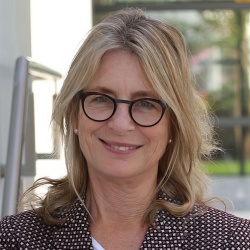 The James Cook Medal is awarded for the most meritorious lifetime contributions to knowledge and society in Australia or its territories made by an individual and conducted mainly in New South Wales. The recipient may be resident in Australia or elsewhere. The James Cook Medal was established by the Council in 1943 following a donation made by Henry Ferdinand Halloran to celebrate his 50 years as a member of the Society and it has been awarded periodically since 1947. In 2023, the Council determined to award it annually.
The James Cook Medal is awarded for the most meritorious lifetime contributions to knowledge and society in Australia or its territories made by an individual and conducted mainly in New South Wales. The recipient may be resident in Australia or elsewhere. The James Cook Medal was established by the Council in 1943 following a donation made by Henry Ferdinand Halloran to celebrate his 50 years as a member of the Society and it has been awarded periodically since 1947. In 2023, the Council determined to award it annually.
Helen Christensen, from the Black Dog Institute, UNSW Sydney, is a highly innovative scientist who has achieved an unparalleled level of impact on internet-mediated mental health both in Australia and worldwide. She is internationally recognised as founding the use of digital and online technology to deliver evidence-based prevention and intervention therapy for common mental illnesses. Her groundbreaking contributions have spawned a vast international research effort that incorporates academia, business, clinics, and community, not only leading the research field internationally but greatly improving the lives of many, many Australians living with mental illness.
RSNSW Edgeworth David Medal
Professor Qilin Wang FRSN
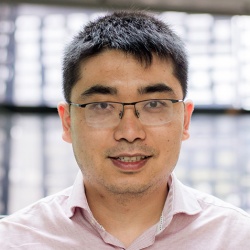 The Edgeworth David Medal is awarded for the most meritorious contributions to knowledge and society in Australia or its territories, conducted mainly in New South Wales by an individual who is from 5–15 years post-PhD or equivalent on 1 January of the year of the award. The recipient may be resident in Australia or elsewhere. The Edgeworth David Medal was established by Council in 1943 in honour of Sir T. W. Edgeworth David FRS, who compiled the first comprehensive record of the geology of Australia, and following a donation made by Henry Ferdinand Halloran to celebrate his 50 years as a member of the Society. It has been periodically awarded since 1948 and in 2023, the Council determined to award it annually.
The Edgeworth David Medal is awarded for the most meritorious contributions to knowledge and society in Australia or its territories, conducted mainly in New South Wales by an individual who is from 5–15 years post-PhD or equivalent on 1 January of the year of the award. The recipient may be resident in Australia or elsewhere. The Edgeworth David Medal was established by Council in 1943 in honour of Sir T. W. Edgeworth David FRS, who compiled the first comprehensive record of the geology of Australia, and following a donation made by Henry Ferdinand Halloran to celebrate his 50 years as a member of the Society. It has been periodically awarded since 1948 and in 2023, the Council determined to award it annually.
Qilin Wang, from the University of Technology Sydney, has achieved international recognition for his contributions to sustainable wastewater treatment and wastewater-based epidemiology. His patented technology can convert wastewater treatment plants into carbon-neutral energy generators by ingeniously harnessing a waste by-product on-site. In addition to this energy innovation, Professor Wang's technology significantly reduces the environmental impact of wastewater treatment by effectively preventing pollution — including antibiotic resistance genes, pathogens, nitrogen, microplastics, and ‘forever chemicals’ – from entering the environment while minimising waste production and land usage.
Furthermore, Professor Wang has pioneered the development of an accurate prediction tool that can forecast hospital admissions due to COVID-19 up to four weeks in advance, relying on wastewater-based epidemiology. His outstanding contributions have been recognised through numerous research and industry awards, including a Eureka Prize for Outstanding Early Career Researcher, a Eureka Prize for Applied Environment Research, an Australian Research Leader in Water Supply & Treatment, a NSW Young Tall Poppy, a Prime Minister’s Prize Finalist, a MIT Technology Review Innovator, and Australia’s Most Innovative Engineer. He secured a tenured full professorship only seven years after PhD completion, a German Humboldt Fellowship for Experienced Researcher, an ARC DECRA Fellowship only six months after his PhD completion, and an ARC Future Fellowship—Level 2 only five years after PhD completion.
RSNSW Aboriginal and/or Torres Strait Islander Scholars Medal
Aunty Francis Bodkin
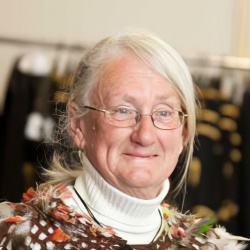 The Aboriginal and/or Torres Strait Islander Scholars Medal is awarded for the most meritorious contributions to knowledge and society made by scholars identifying as Australian Aboriginal or Torres Strait Islander and conducted mainly in New South Wales. Recipients may be resident in Australia or elsewhere. The Aboriginal and/or Torres Strait Islander Scholars Medal was established by the Council in 2023 to reflect the full scope of the Society’s values.
The Aboriginal and/or Torres Strait Islander Scholars Medal is awarded for the most meritorious contributions to knowledge and society made by scholars identifying as Australian Aboriginal or Torres Strait Islander and conducted mainly in New South Wales. Recipients may be resident in Australia or elsewhere. The Aboriginal and/or Torres Strait Islander Scholars Medal was established by the Council in 2023 to reflect the full scope of the Society’s values.
Aunty Francis Bodkin, of Western Sydney University, has made significant contributions to Aboriginal knowledge across multiple disciplines, including medicine, linguistics, the environment, and psychology. Since her first publication in 1986 on native and exotic plants in Australia, Aunty Fran has contributed to 36 different works spanning fields of knowledge such as native flora and fauna, environmental sustainability, Dream time and Ancestral knowledge, climate, D'harawal Language, medicine, and psychology. Her D'harawal Pharmacopeia consists of 1,885 pages of native plants prevalent in D'harawal Country (the Sydney region), their medical uses, and associations with other native plants. Aunty Fran has dedicated herself to teaching others in higher education, schools, and community organisations, and to documenting her knowledge in literature for future generations. Without the contributions of Aunty Fran, undoubtedly a significant amount of Indigenous cultural knowledge would have been lost.
RSNSW Ida Browne Early Career Medal
Dr Brendon Neuen
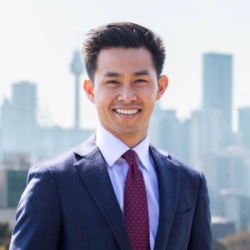 The Ida Browne Early Career Award recognises the most meritorious contributions to knowledge and society in Australia or its territories by an individual from 0–5 years post-PhD or equivalent on 1 January of the year of the award and conducted mainly in New South Wales. The recipient may be resident in Australia or elsewhere. The Ida Browne Medal was established by the Council in 2023 in honour of Ida Browne DSc, a palaeontologist and the first woman President of the Royal Society of NSW, serving from 1953–1954.
The Ida Browne Early Career Award recognises the most meritorious contributions to knowledge and society in Australia or its territories by an individual from 0–5 years post-PhD or equivalent on 1 January of the year of the award and conducted mainly in New South Wales. The recipient may be resident in Australia or elsewhere. The Ida Browne Medal was established by the Council in 2023 in honour of Ida Browne DSc, a palaeontologist and the first woman President of the Royal Society of NSW, serving from 1953–1954.
Brendon Neuen is a Nephrologist and Director of the Kidney Trials Unit at Royal North Shore Hospital, and a Senior Research Fellow at The George Institute for Global Health, UNSW Sydney. He is widely recognised for his expertise in cardio-renal-metabolic medicine. Dr Neuen established the SGLT2 Meta-Analysis Cardio-Renal Trialists' Consortium, bringing together data on more than 90,000 patients to better understand the effects of this class of medicines on different types of patients. His work has directly informed more than 25 major international and national guidelines, position papers, and scientific statements that provide optimal care for people with type 2 diabetes and kidney disease.
RSNSW Clarke Medal and Lecture in Earth Sciences
Professor Moninya Roughan FRSN
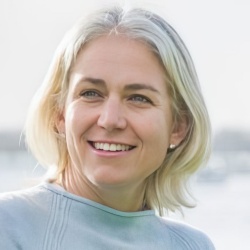 The Clarke Medal and Lecture is awarded for distinguished research in any area of the sciences affecting the planet, excluding Medicine and Veterinary Science, and Agricultural and Environmental Science, and conducted mainly in New South Wales. Recipients may be resident in Australia or elsewhere. The Medal honours Rev. William Branwhite Clarke, a geologist, and a significant figure in the history of the Royal Society of NSW, who served for a decade as a highly influential Senior Vice-President of the Society (noting that in the early years, the Governor of NSW was the President of the Society).
The Clarke Medal and Lecture is awarded for distinguished research in any area of the sciences affecting the planet, excluding Medicine and Veterinary Science, and Agricultural and Environmental Science, and conducted mainly in New South Wales. Recipients may be resident in Australia or elsewhere. The Medal honours Rev. William Branwhite Clarke, a geologist, and a significant figure in the history of the Royal Society of NSW, who served for a decade as a highly influential Senior Vice-President of the Society (noting that in the early years, the Governor of NSW was the President of the Society).
Moninya Roughan, from UNSW Sydney, is an outstanding oceanographer and authority on the dynamics of the East Australian Current, ocean observing and prediction systems, and their application to understanding western boundary currents and continental shelf processes. She currently leads the Coastal and Regional Oceanography Lab at UNSW – where she has made important, far-reaching contributions to our understanding of continental shelf processes and western boundary current warming through the use of new technologies. An internationally acknowledged leader in her field, she is also dedicated to the training of the next generation of scientific leaders.
RSNSW Walter Burfitt Award in Medical and Veterinary Sciences and Technologies
Professor Maria Kavallaris AM FRSN FAHMS
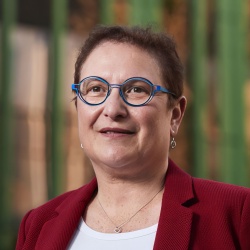 The Walter Burfitt Award recognises distinguished research in any area of the Medical and Veterinary Sciences and Technologies, conducted mainly in New South Wales. Recipients may be resident in Australia or elsewhere. The Walter Burfitt Award honours the life and work of Walter F. Burfitt BA MB ChM BSc, an eminent Sydney surgeon in the 1950s. It was established as a prize with generous support from Dr Burfitt and his wife, and was first awarded in 1929.
The Walter Burfitt Award recognises distinguished research in any area of the Medical and Veterinary Sciences and Technologies, conducted mainly in New South Wales. Recipients may be resident in Australia or elsewhere. The Walter Burfitt Award honours the life and work of Walter F. Burfitt BA MB ChM BSc, an eminent Sydney surgeon in the 1950s. It was established as a prize with generous support from Dr Burfitt and his wife, and was first awarded in 1929.
Maria Kavallaris, from the Children’s Cancer Institute of UNSW Sydney, is an exceptional cancer research leader, innovator, mentor, and role model who has made seminal discoveries on mechanisms of clinical drug resistance and tumour aggressiveness in childhood and adult cancers. Recognised as a world leader in cancer and microtubules, her discoveries have led to both patents and industry partnerships for the development of cancer therapeutics. Crucially, in complement to her exceptional research record, Professor Kavallaris has made outstanding contributions to NSW and Australia via highly influential medical research advocacy and mentoring the next generation of Australian cancer research leaders.
RSNSW Award in the Social and Behavioural Sciences
Scientia Professor Kaarin Anstey FRSN FASSA FAHMS
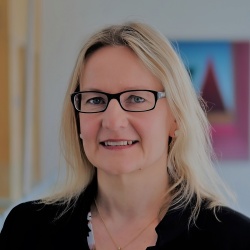 This award recognises distinguished research in any area of the Social and Behavioural Sciences including Psychology, Economics, Management, and related disciplines, conducted mainly in New South Wales. Recipients may be resident in Australia or elsewhere. This Award was established by the RSNSW Council in 2023 to reflect the full scope of the Society’s founding values.
This award recognises distinguished research in any area of the Social and Behavioural Sciences including Psychology, Economics, Management, and related disciplines, conducted mainly in New South Wales. Recipients may be resident in Australia or elsewhere. This Award was established by the RSNSW Council in 2023 to reflect the full scope of the Society’s founding values.
Kaarin Anstey, from Neuroscience Research Australia of UNSW Sydney, is a world leader in cognitive ageing and dementia risk reduction. Her program of research has contributed greatly to the evidence base on dementia prevention through the identification and quantification of risk factors for dementia, the development of risk assessment tools, and the implementation of interventions. Moreover, her work has directly informed public policy and guidelines, both within Australia and globally, particularly in her collaboration with the World Health Organization. As a consequence, she has made an important, sustained, positive impact on the lives of tens of thousands of people in Australia and around the world.
RSNSW Award in the History and Philosophy of Science
Professor Hans Pols FRSN FAHA FASSA
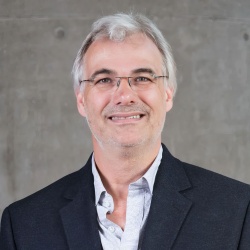 This Award recognises distinguished research in the History and Philosophy of Science conducted mainly in New South Wales. Recipients may be resident in Australia or elsewhere. The Royal Society of NSW History and Philosophy of Science Award was established by the Council in 2013 to reflect the founding values of the Society and was first awarded in 2014.
This Award recognises distinguished research in the History and Philosophy of Science conducted mainly in New South Wales. Recipients may be resident in Australia or elsewhere. The Royal Society of NSW History and Philosophy of Science Award was established by the Council in 2013 to reflect the founding values of the Society and was first awarded in 2014.
Hans Pols, from the University of Sydney, is the preeminent historian of science and medicine in Indonesia and Southeast Asia and a leading international scholar of the development of global neurosciences. His principal work, Nurturing Indonesia: Medicine and Decolonisation in the Dutch East Indies, transforms our understanding of the connections of scientific research with nationalism and decolonisation at the same time as it makes key contributions to the global history of science. His groundbreaking studies in the history of twentieth-century psychiatry are exemplars of science historiography, illuminating contemporary predicaments and showing how scientific insight is shaped by and shapes national projects and global concerns.
RSNSW Bicentennial Postgraduate Scholarships
The RSNSW Bicentennial Postgraduate Scholarships are awarded each year to recognise outstanding achievements by young researchers in any academic field. Applicants must have completed an undergraduate degree within NSW or the ACT and must on 1 January of the year of nomination be enrolled as research students in the first or second year of their first higher degree at a university or other research institution in NSW or the ACT.
For 2023, two RSNSW Scholarships have been awarded:
- Ms Sasha Bailey — PhD Candidate, University of Sydney
- Mr Jayden McKinnon — PhD Candidate, University of Wollongong
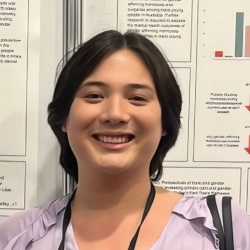 Ms Sasha Bailey is a second-year PhD and research assistant in the Matilda Centre for Research in Mental Health and Substance Use at the University of Sydney, having previously completed a BA in Philosophy and a Master Of Public Health, also at the University of Sydney. Since commencing her PhD in March 2022, she has received 19 awards/prizes and has published two journal articles as a first author with a further 12 first-author publications under review. In addition to her research program, Sasha holds a number of leadership and governance roles in the Matilda Centre and the wider LGBTQA+ community.
Ms Sasha Bailey is a second-year PhD and research assistant in the Matilda Centre for Research in Mental Health and Substance Use at the University of Sydney, having previously completed a BA in Philosophy and a Master Of Public Health, also at the University of Sydney. Since commencing her PhD in March 2022, she has received 19 awards/prizes and has published two journal articles as a first author with a further 12 first-author publications under review. In addition to her research program, Sasha holds a number of leadership and governance roles in the Matilda Centre and the wider LGBTQA+ community.
The focus of Sasha’s research is on improving the understanding and prevention of mental ill-health and substance use among gender and sexuality-diverse (LGBTQA+) young people in Australia and internationally. Using data from the Longitudinal Study of Australian Children, she has produced Australia’s first-ever population-level, nationally representative estimates of the number of LGBTQA+ young people affected by mental ill-health, substance use, victimisation, and discrimination, within Australia, identifying just how much an LGBTQA+ affirming school climate can protect and buffer against the mental ill-health effects of victimisation and discrimination. Her research is complemented by her active advocacy for improved LGBTQA+ public health action, with her nominators noting that she is called upon routinely by senior executives at the University to deliver speeches about LGBTQA+ visibility at the University.
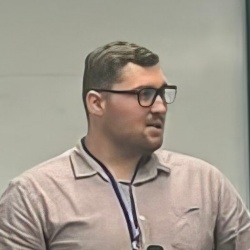 Mr Jayden McKinnon is a PhD student in the Molecular Horizons Research Institute and the School of Chemistry and Molecular Biosciences at the University of Wollongong following his BMedSc (Hons) degree studies at UoW. His PhD studies are in the field of mass spectroscopy imaging, the aim of which is the development of innovative methods for the detection of metabolites in tissues.
Mr Jayden McKinnon is a PhD student in the Molecular Horizons Research Institute and the School of Chemistry and Molecular Biosciences at the University of Wollongong following his BMedSc (Hons) degree studies at UoW. His PhD studies are in the field of mass spectroscopy imaging, the aim of which is the development of innovative methods for the detection of metabolites in tissues.
Now in his second year of his PhD, he has achieved a first-author paper in the journal, Analytical Methods. In addition, he has been recognised through two significant awards at the University of Wollongong Higher Degree Research Symposium – the Student Choice Award for Best Oral Presentation and the Best Oral Presentation Award. In addition to his research studies, Jayden has also taken on academic and scientific leadership positions, notably as the Vice President of the Medical and Health Sciences Association at the University of Wollongong from 2018-2020, and currently as a student representative on the board of the Australian and New Zealand Society for Mass Spectrometry.
RSNSW Bicentennial Early Career Research and Service Citations
The RSNSW Bicentennial Early Career Research and Service Citations are awarded each year to recognise outstanding contributions to research and service to the academic and wider community. Applicants must on 1 January of the year of nomination be no more than 5 years after the award of their PhD or equivalent by a university or other research institution in NSW or the ACT.
For 2023, three RSNSW Early Career Citations have been awarded:
- Dr Jacinta Martin — University of Newcastle
- Dr Abhimanu Pandey — Australian National University
- Dr Shoujin Wang — University of Technology Sydney
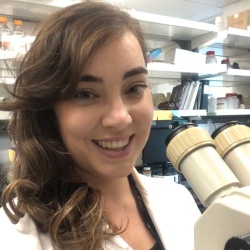 Since 2021, Dr Jacinta Martin has been a Lecturer and postdoctoral researcher in the University of Newcastle (UoN) College of Engineering, Science and Environment and the Hunter Medical Research Institute (HMRI) Infertility and Reproduction Research Program. She works with a multidisciplinary group of researchers using human and animal models to characterise the processes of gamete maturation — the process by which oocytes and spermatozoa are formed. The goal of her research is to improve the understanding of factors that lead to infertility and pregnancy loss in women.
Since 2021, Dr Jacinta Martin has been a Lecturer and postdoctoral researcher in the University of Newcastle (UoN) College of Engineering, Science and Environment and the Hunter Medical Research Institute (HMRI) Infertility and Reproduction Research Program. She works with a multidisciplinary group of researchers using human and animal models to characterise the processes of gamete maturation — the process by which oocytes and spermatozoa are formed. The goal of her research is to improve the understanding of factors that lead to infertility and pregnancy loss in women.
After graduating from UoN with a PhD in 2019, Jacinta has established a strong academic record that includes 24 research articles and nearly $1 million in research funding. During her PhD, Jacinta received the "Best HDR Publication Award" in 2016 and 2018 and received a number of travel grants that allowed to to present her work at major international meetings. Following her PhD, she undertook post-doctoral research at the McGill University Health Centre in Montreal, Canada from 2019–2021. Dr Martin's academic career extends beyond her personal research performance into the development of her discipline. She has served the Society for the Study of Reproduction (USA) on the Board of Directors as their trainee representative and has had significant professional roles at McGill University, HMRI, and the University of Newcastle as a facilitator, chair, adjudicator, and committee member.
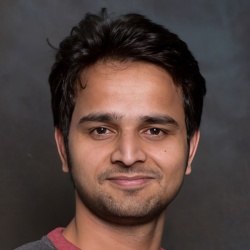 Dr Abhimanu Pandey is a postdoctoral researcher at the John Curtin School of Medical Research (JCSMR) at the Australian National University, following the completion of his PhD at JCSMR in 2022 and undergraduate studies in India prior to that. He works in the research group of Professor Si Ming Man FRSN which studies innate immunity and inflammasomes. At the time of the application for this award, he has 15 peer-reviewed publications, nine of which were generated during his PhD, and has been awarded three early career research grants. In his research, he has identified a novel biomarker for bowel cancer that can sense DNA and inhibit the development and progression of bowel inflammation and cancer. The identification of precise structural locations within the immune protein that are druggable, using small molecule drugs, is expected to be transformational in the improvement of treatment outcomes in patients with inflammation and cancer.
Dr Abhimanu Pandey is a postdoctoral researcher at the John Curtin School of Medical Research (JCSMR) at the Australian National University, following the completion of his PhD at JCSMR in 2022 and undergraduate studies in India prior to that. He works in the research group of Professor Si Ming Man FRSN which studies innate immunity and inflammasomes. At the time of the application for this award, he has 15 peer-reviewed publications, nine of which were generated during his PhD, and has been awarded three early career research grants. In his research, he has identified a novel biomarker for bowel cancer that can sense DNA and inhibit the development and progression of bowel inflammation and cancer. The identification of precise structural locations within the immune protein that are druggable, using small molecule drugs, is expected to be transformational in the improvement of treatment outcomes in patients with inflammation and cancer.
In addition to his research profile, Dr Pandey has demonstrated leadership within his profession. Within JCSMR, he organised the first School HDR Student Conference in 2022, while within the wider University, he volunteers and raises funds for the Multiple Sclerosis Mega Swim event, and serves as a mentor for undergraduate science students. Externally, he is a reviewer for five international research journals.
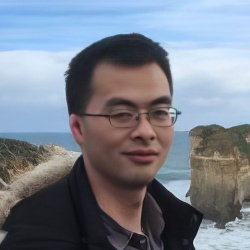 Dr Shoujin Wang is a Lecturer in Data Science at the University of Technology Sydney, following the completion of his PhD at UTS in 2019. His research interests are in data mining, machine learning, recommender systems, and fake news mitigation, and in the past five years, he has authored 60 publications that have received 2,400 citations. His research record includes a number of IEEE awards and a growing research grant profile.
Dr Shoujin Wang is a Lecturer in Data Science at the University of Technology Sydney, following the completion of his PhD at UTS in 2019. His research interests are in data mining, machine learning, recommender systems, and fake news mitigation, and in the past five years, he has authored 60 publications that have received 2,400 citations. His research record includes a number of IEEE awards and a growing research grant profile.
His research activities have a range of real-world applications and impacts, notably his pioneering work on fake news mitigation via recommendation that is helping to mitigate disinformation on the web. His work addresses challenges faced across a range of sectors including infrastructure, banking, accounting, and agriculture, and involves collaborators that include EY, Sydney Water, Suncorp, and Agriweb. His work with Sydney Water has led to a novel prediction model that automatically and effectively provides early detection of water quality issues in reservoir catchments.
RSNSW Jak Kelly Award
The RSNSW Jak Kelly Award recognises excellence in postgraduate research in physics annually. The winner is selected from presenters at each year’s Australian Institute of Physics NSW Branch Postgraduate Awards, as advised to the Awards Committee of the Royal Society of NSW. This Award honours the life of Jak Kelly (1928-2012), Professor and Head of Physics at the University of NSW (1985-1989), Honorary Professor at the University of Sydney (2004), and President of the Royal Society of NSW (2005-2006). It was first awarded in 2010.
For 2023, the Jak Kelly Award goes to Mr Jamie Andres Alvarado-Montes of Macquarie University.
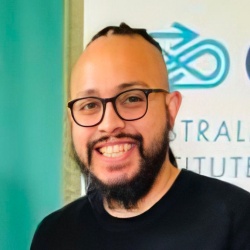 Mr Jamie Andres Alvarado-Montes, originally from Colombia, is a PhD candidate in the School of Mathematical and Physical Sciences at Macquarie University. His research focusses on the planetary sciences, with an emphasis on extrasolar planets, moons, rings, asteroids, and comets. His award-winning presentation at the 2023 Australian Institute of Physics NSW Postgraduate Awards was titled “Tidal Evolution and Detectability of Close-in Extrasolar Systems”. In this talk, he discussed how close-in planetary systems, composed of giant bodies, can help us test tidal models and work as a probe to constrain the interior structure of stars and planets and showed how tidal interactions affect the evolution of planetary systems. He concluded by noting that despite the plethora of exoplanets discovered to date, none of them have the same characteristics as those of our unique solar system and that research, such as his, can provide a better understanding of how features of our solar system, yet to be discovered around other stars, may eventually be detected through improved models of planetary tidal evolution.
Mr Jamie Andres Alvarado-Montes, originally from Colombia, is a PhD candidate in the School of Mathematical and Physical Sciences at Macquarie University. His research focusses on the planetary sciences, with an emphasis on extrasolar planets, moons, rings, asteroids, and comets. His award-winning presentation at the 2023 Australian Institute of Physics NSW Postgraduate Awards was titled “Tidal Evolution and Detectability of Close-in Extrasolar Systems”. In this talk, he discussed how close-in planetary systems, composed of giant bodies, can help us test tidal models and work as a probe to constrain the interior structure of stars and planets and showed how tidal interactions affect the evolution of planetary systems. He concluded by noting that despite the plethora of exoplanets discovered to date, none of them have the same characteristics as those of our unique solar system and that research, such as his, can provide a better understanding of how features of our solar system, yet to be discovered around other stars, may eventually be detected through improved models of planetary tidal evolution.
RSNSW Service Awards
Royal Society of NSW Medal
Ms Judith Wheeldon AM FRSN
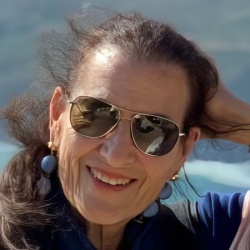 The Royal Society of New South Wales Medal recognises an individual who has made meritorious contributions to the advancement of knowledge in any field and also to the Society’s administration, organisation, and endeavours. The RSNSW Medal was first awarded in 1884, revived in 1943, and has been awarded periodically thereafter.
The Royal Society of New South Wales Medal recognises an individual who has made meritorious contributions to the advancement of knowledge in any field and also to the Society’s administration, organisation, and endeavours. The RSNSW Medal was first awarded in 1884, revived in 1943, and has been awarded periodically thereafter.
Judith Wheeldon is first mentioned in the annual report of the RSNSW in 2013, being one of four panellists in the Society’s third Forum at the Powerhouse Museum. Elected as a Fellow of the Society and Councillor in 2014, there began a continuous and meritorious involvement with the Society for the next decade. Her Fellowship citation reads “Judith Wheeldon is recognised for eminent and long-standing service to Australian secondary education at senior levels and for service to professional organisations.”
Judith was elected to the RSNSW Council as a member in 2014 and as Vice-President in 2015, a position she held until her retirement in 2023. In addition, she served as a member of the Fellows, Nominations, Membership, Events, Voice and Outreach, Community Engagement, and Fundraising Committees. Her contributions to the Society are typified by her work to establish strong relationships with other organisations including the State Library of NSW, the Sydney Mechanics School of Arts, and Government House in Sydney where she established the series “Ideas@theHouse.”
Judith’s impact in the wider community is as a leader in education and the arts. She is a recognised innovator in the education of girls through her roles as principal or headmistress of four schools including Abbotsleigh and Queenwood. As a director on the Australian Learning and Teaching Council, Judith contributed to the management and planning of teaching across Australia and was a Trustee of the Museum of Applied Arts and Science (Powerhouse Museum). She was honoured as a Member of the Order of Australia in 2006 in “Recognition of contribution to Australian public life, specifically in education leadership and pro bono work in the community.”
Royal Society of NSW Citation
Mr Jason Antony MRSN
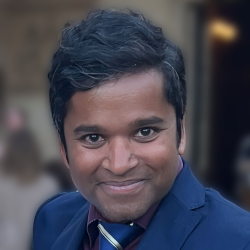 The Royal Society of New South Wales Citations recognise individuals who have made significant contributions to the Society, but who have not been recognised in any other way. The RSNSW Citation was first awarded in 2019.
The Royal Society of New South Wales Citations recognise individuals who have made significant contributions to the Society, but who have not been recognised in any other way. The RSNSW Citation was first awarded in 2019.
Jason Antony MRSN has been indispensable in the production of fifteen issues of the Journal & Proceedings of the Royal Society since 2016 and as editor (and producer) of 28 issues of the Bulletin from 2020 to 2023. To appear, publications — both on-line and printed — require knowledge, skills, and effort. Providing all of these, Jason has contributed hugely to the improved presentation and appeal of both publications, important for the Society’s outreach, heritage, and communications. This Citation is a measure of his value and continuing importance to the Society.
OUR 21st CENTURY BRAIN
Dates: Thursday 2 November 2023, 8.45 am–5.00 pm AEDT
Venue: Live-streamed and now on YouTube
Brochure: A program brochure, comprising the program, abstracts and speaker biographies, is available from this website.
On this page:
Summary
The brain underpins our basic instincts and needs, and behavioural responses to the world around us. The brain mediates our compassion, reason, and imagination which are reflected in great works of the arts and sciences. Yet our brain is also the source of distress, dysfunction, and malice. Despite centuries of recurring impacts of tribalism, racism, dehumanisation, and exclusion of ‘outsiders’, we continue to inflict suffering on others.
At the same time, the 21st century brings new challenges that extend well beyond immediate threats to very complex societal challenges such as global security, climate change, massive demographic shifts, resource management, information overload, and artificial intelligence.
Have we reached the edge of our human capacity to respond effectively as either individuals or collective groups?
The context and demands on our brains have been transformed by the very tools we have created, including new information technology platforms, and rapidly developing and deployed forms of artificial intelligence. Diseases of the brain are increasingly prevalent in our ageing population, as are the increasing mental health challenges that are evident across the human lifespan.
Considerable progress across the sciences and humanities has deepened our understanding of genetic, environmental, and social factors that underpin brain development and function. Rising demands on our capacity to respond appropriately to globalised threats bring an urgent need to apply our scientific understanding to the development of just and sustainable solutions.
This year’s Royal Society of New South Wales and Learned Academies Forum focusses on recent progress in unravelling the workings of the brain and opportunities to use our emerging understanding to promote human well-being well beyond the 21st Century.
The Forum is held under the auspices of Her Excellency the Honourable Margaret Beazley AC KC, Governor of New South Wales. The Royal Society of New South Wales acknowledges the generous support of Her Excellency, the Academies, the Office of the NSW Chief Scientist and Engineer, and Haus Holdings.
Program and Presentations
The full video recording of each session is accessed by clicking on the YouTube video images, while direct access to each of the speakers' presentations and segments in the sessions is available through the links shown in the program text.
| Welcome, Opening and Keynote Presentations |
|
|
Introduction to the Governor Director National Institute of Medical Health, USA |
|
| Session I: The Developing Mind |
|
| Professor Penny Van Bergen Head, School of Education University of Wollongong Moderator Professor Adam Guastella Michael Crouch Chair in Child & Youth Mental Health Sydney Children's Hospital and University of Sydney Professor Sharynne McLeod FRSN FASSA Professor of Speech and Language Acquisition Charles Sturt University Professor Anne Castles ARC Laureate Fellow Australian Centre for the Advancement of Literacy Australian Catholic University Associate Professor Kate Highfield Discipline Lead for Early Childhood Education University of Canberra Audience Q&A Moderated by Professor Penny Van Bergen |
|
| Session II: The Brain—Social, cultural, and Philosophical Perspectives |
|
|
Emeritus Professor Philippa Pattison AO FRSN FASSA Professor of Philosophy University of Sydney Audience Q&A |
|
| Session III: The Brain Disease Burden in Adults |
|
| Professor Anthony Cunningham AO FRSN FAHMS Director, Centre for Virus Research Westmead Institute for Medical Research and University of Sydney Moderator Professor Glenda Halliday FAA FAHMS NHMRC Leadership Fellow Sydney School of Medical Sciences University of Sydney Professor Sharon Naismith NHMRC Leadership Fellow and Leonard P Ullman Chair in Psychology University of Sydney Associate Professor Lycette Cysique Cross-disciplinary Neurophysiologist St Vincent's Applied Medical Research Centre and Kirby Institute, UNSW Sydney Audience Q&A |
|
| Session IV: Turbocharging Human Intelligence with Artificial Intelligence |
|
| Professor Ian Oppermann FRSN FTSE NSW Government Chief Data Scientist and Industry Professor, University of Technology Sydney Moderator Professor Sally Cripps Director of Technology, Human Technology Institute and Professor of Mathematics and Statistics University of Technology Sydney Ms Stela Solar Director, National AI Centre CSIRO Professor Lyria Bennett Moses Associate Dean (Research), Faculty of Law and Justice, and Director, UNSW Allens Hub for Technology, Law, and Innovation UNSW Sydney Audience Q&A Moderated by Professor Ian Oppermann |
|
| Session V: Rapporteur Remarks — Implications for the Future |
|
| Rapporteur Professor Ian Hickie AM FRSN FASSA FAHMS NHMRC Senior Principal Research Fellow Professor of Psychiatry and Co-Director (Health and Policy), Brain and Mind Centre University of Sydney | with panellists Emeritus Professor Peter Baume AC DistFRSN Scientia Professor Helen Christensen AO FASSA FAHMS, Blackdog Institute and UNSW Sydney Emeritus Professor Philippa Pattison AO FRSN FASSA, University of Sydney Professor Jakelin Troy FASSA, University of Sydney |
|
OUR 21st CENTURY BRAIN
Date: Thursday, 2 November 2023, 9.00 am–5.30 pm AEDT
Venue: Government House Sydney (RSNSW member registration required) and live-streaming
Registration: Information to follow
Brochure: Full Program, Summary
Summary
The brain is our most complex organ. It underpins our basic instincts and needs and our behavioural responses to the world around us. Our brain mediates the compassion, reason, and imagination that are reflected in great works of the arts and sciences. Yet our brain is also the source of distress, dysfunction, and malice. Despite centuries of recurring impacts of tribalism, racism, dehumanisation, and exclusion of ‘outsiders’, we continue to inflict suffering on others.
At the same time, the 21st century brings new challenges that extend well beyond immediate threats to very complex societal challenges such as global security, climate change, massive demographic shifts, resource management, information overload, and artificial intelligence. Have we reached the edge of our human capacity to respond effectively as either individuals or collective groups?
The context and demands on our brains have been transformed by the very tools we have created, including new information technology platforms, and rapidly developing and deployed forms of artificial intelligence. Diseases of the brain are increasingly prevalent for our ageing population, as are the increasing mental health challenges evident across the lifespan.
Considerable progress across the sciences and humanities has deepened our understanding of genetic, environmental, and social factors that underpin brain development and function, yet the rising demands on our capacity to respond appropriately to globalised threats bring an urgent need for novel, just, and sustainable solutions.
This year’s Royal Society of New South Wales and Learned Academies Forum focuses on recent progress in unravelling the workings of the brain and opportunities to use our emerging understanding to promote human well-being well beyond the 21st Century.
The Forum is held under the auspices of Her Excellency the Honourable Margaret Beazley AC KC, Governor of New South Wales. The Royal Society of New South Wales acknowledges the generous support by Her Excellency, the Academies, the Office of the NSW Chief Scientist and Engineer, and Haus Holdings.
PROGRAM: THURSDAY 2 NOVEMBER 2023 (8.30 AM – 6.00 PM
| Time | |
| 08:30–08:45 | Registration and Guests seated |
| 08:45–10:00 | Official Opening Her Excellency the Honourable Margaret Beazley AC KC Governor of New South Wales |
| Welcome and Acknowledgements Susan Pond AM FRSN FTSE FAHMS President, Royal Society of New South Wales |
|
| Keynote Presentations Moderator Scientia Professor George Paxinos AO DistFRSN FAA FASSA FAHMS NHMRC Senior Principal Research Fellow Neuroscience Research Australia and UNSW Sydney |
|
| Speaker The enigmatic brain: from synapses to neural networks Professor Lucy Palmer Viertel Senior Medical Research Fellow Florey Institute of Neuroscience and Mental Health University of Melbourne |
|
| Speaker via video Lessons from developmental and cognitive neuroscience Dr Joshua Gordon Director National Institute of Mental Health, USA |
SESSION I: THE DEVELOPING MIND
Moderator
Professor Penny Bergen
Head, School of Education, Faculty of Arts, Social Sciences and the Humanities
University of Wollongong
William Wordsworth, a British romantic poet, in 1802 used the expression, “The child is the father of the man.” Psychologists have borrowed the poetry to emphasize the outsized influence of early experiences. Speakers in this session will discuss our contemporary understanding of early life influences from - 9 months to 25 years on the anatomy and physiology of the brain and the development of human cognitive, emotional, and social capabilities.
| 10:00–11:15 | Professor Sharynne McLeod FRSN FASSA Professor Speech and Language Acquisition Charles Sturt University |
| Professor Anne Castles FRSN FASSA ARC Laureate Fellow Australian Centre for the Advancement of Literacy Australian Catholic University |
|
| Professor Adam Guastella Michael Crouch Chair in Child and Youth Mental Health, Sydney Children's Hospital at Westmead, and The Brain and Mind Centre, Faculty of Medicine and Health University of Sydney |
|
| Associate Professor Kate Highfield Discipline Lead for Early Childhood Education University of Canberra |
MORNING TEA SERVED ON THE VERANDAH (11:15–11:45)
SESSION II: THE BRAIN—SOCIAL, CULTURAL AND PHILOSOPHICAL PERSPECTIVES
Moderator
Professor Phillipa Pattison AO FRSN FASSA
Emeritus Professor
University of Sydney and University of Melbourne
The human brain has evolved an extraordinarily efficient information storage and processing capacity, arguably in response to the increasing social complexity of human life but is also subject to more immediate environmental influences that are social, cultural and technological in character. In this session, we consider what we know of these influences and their individual and societal impacts, and what this means for human capability.
| 11:45–13:00 | Professor Jakelin Troy FASSA Director Indigenous Research University of Sydney |
| Professor Andrew Chanen Chief of Clinical Practice and Head of Personality Disorder Research, Orygen Professorial Fellow, Centre for Youth Mental Health, University of Melbourne |
|
| Professor David Braddon-Mitchell FAHA Discipline of Philosophy, School of Humanities University of Sydney |
|
| The Hon. Dr Andrew Leigh MP FASSA (by video) Assistant Minister for Competition, Charities and Treasury, and Federal Member for Fenner in the ACT |
|
| Dr Jennifer Kent DECRA and Robinson Fellow, Urbanism Discipline Research Lead University of Sydney School of Architecture, Design, and Planning |
LUNCH SERVED ON THE VERANDAH (13:00–14:00)
SESSION III: THE BRAIN DISEASE BURDEN IN ADULTS
Moderator
Professor Anthony Cunningham AO FRSN FAHMS
Director, Centre for Virus Research, Westmead Institute for Medical Research
Vaccine Theme Leader, Sydney Infectious Diseases Institute, University of Sydney
This session will consider two of the major syndromes affecting the brain in adult life, dementia and long COVID, each with physical, psychological, social and economic impacts for the patient, their families, carers, and society. Both have inadequate treatments. Today there are ~400,000 people with dementia in Australia, expected to double by 2060, and it is now the leading cause of death. Long COVID is a multisystem illness, including ‘brain fog, persisting for weeks or months following COVID infection, often in the mid-adult age group with comorbidities.
| 14:00–15:00 | Professor Glenda Halliday FAA FAHMS NHMRC Leadership Fellow School of Medical Sciences, Brain and Mind Centre University of Sydney |
| Professor Sharon Naismith Leonard P. Ullman Chair in Psychology and NHMRC Leadership Fellow University of Sydney |
|
| Professor Andrew Lloyd NHMRC Practitioner Research Fellow, Kirby Institute UNSW Sydney |
SESSION IV: TURBOCHARGING HUMAN INTELLIGENCE WITH ARTIFICIAL INTELLIGENCE
Moderator
Professor Ian Oppermann FRSN FTSE
New South Wales Government Chief Data Scientist and
Industry Professor, University of Technology Sydney
It is argued that one of the major factors that drove the growth in size and complexity of our brains over millennia has been the need to deal with increasingly complex social environments, and increasingly intelligent other members of those social environments – an “arms race” of sorts driven by social interaction If instead of natural intelligence, we are faced with dealing with increased complexity from the interaction with Artificial Intelligence, what are the changes that we face as humans, and what implications does this have for the long-term development of the human brain?
| 15:00–16:00 | Professor Sally Cripps Director of Technology, Human Technology Institute, and Professor of Mathematics and Statistics University of Technology Sydney |
| Professor Lyria Bennett Moses Associate Dean (Research), Faculty of Law and Justice, and Director of the UNSW Allens Hub for Technology, Law and Innovation UNSW (Sydney) |
|
| Ms Stela Solar Director, National AI Centre CSIRO |
SESSION V: RAPPORTEUR REMARKS—IMPLICATIONS FOR THE FUTURE
This session aims to bring together the insights emerging from Sessions 1-IV and explore their implications for the future. We consider what actions are likely to be necessary, and what Governments and communities need from research and scholarship to take effective action.
| 16:00–17:00 | Professor Ian Hickie AM FRSN FASSA FAHMS NHMRC Senior Principal Research Fellow, Professor of Psychiatry, and Co-Director, Health and Policy, Brain and Mind Centre University of Sydney |

